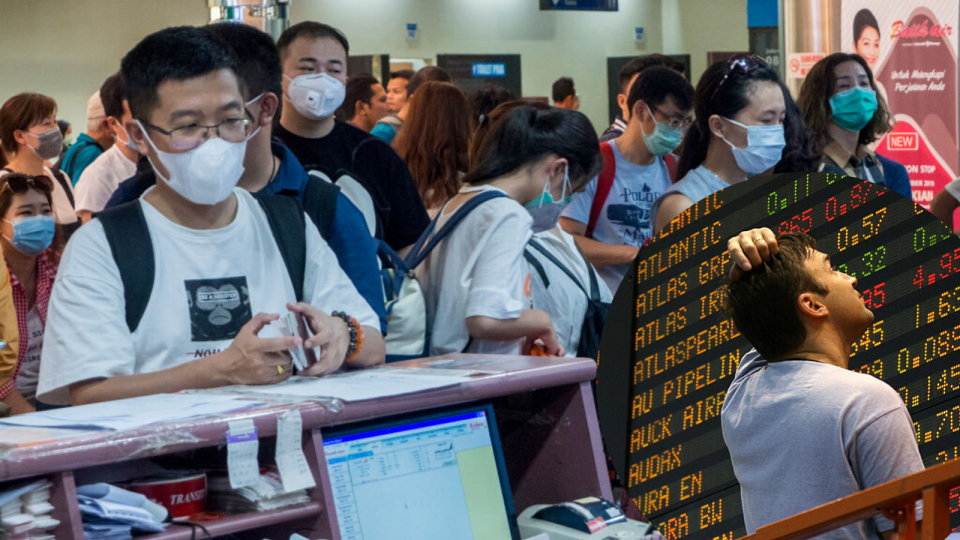ASX hit by coronavirus fears: Here are worst-hit shares

The outbreak of the coronavirus has rattled global financial markets as Chinese citizens under lockdown or fearful of infection pull back from spending.
While retail spending and tourism in the Asian region will be hit directly, Australian markets have also been exposed to the effects of the virus, given that the country welcomes more than 120,000 Chinese tourists each month.
And, coupled with the bushfires, weak consumer spending and interest rates at all-time lows, the coronavirus could be a major risk to the Australian economy, said BetaShares chief economist David Bassanese.
“If local consumer spending, business investment and housing construction also remain weak, this increases the risk of a GDP outcome this quarter perilously close to zero,” he said, adding that weak tourism from Asia would exacerbate the situation.
While experts agree that the negative impacts “should be short-lived”, and tourism forecast to rebound in the second half of 2019, the outlook is less than rosy.
“Australia faces difficult growth challenges over the next few months, which suggests the RBA will likely be forced to cut interest rates further – although probably not as early as next week,” Bassanese said.
Travel, education players hit
Speaking to Yahoo Finance, Motley Fool chief investment officer Steve Phillips said ASX companies in Australia’s education and tourism sectors would be hardest-hit by the virus.
“In the travel sector, we've seen Qantas down 11 per cent over the last month, with Virgin down 12.5 per cent,” he said.
“Travel agents have shared the pain around; Webjet has fallen more than 10 per cent since it's mid-month highs, as has Flight Centre, while Corporate Travel and Helloworld are down by closer to 15 per cent.
“In the education space, IDP Education has fallen more than 6.5 per cent, while Navitas shareholders are probably thanking their lucky stars that the company is no longer publicly listed."
Bell Direct market analyst Jessica Amir also echoed Phillips’ sentiments, pointing to investor uncertainty behind Webjet and Flight Centre’s share price drops.
According to Amir, the 10 worst-hit stocks in the month to 30 January are:
Nearmap (ASX:NEA): -28.54%
Treasury Wine Estates (ASX: TWE): -19.64%
NIB (ASX: NHF): -14.19%
CIMIC Group (ASX: CIM): -13.43%
Corporate Travel Management (ASX: CTD): -13.37%
AP Eagers (ASX: APE): -12.99%
Western Areas (ASX: WSA): -12.87%
Star Entertainment Group (ASX: SGR): -12.17%
Downer EDI (ASX: DOW): -11.57%
Resolute Mining (ASX: RSG): -10.71%
Investors turn to gold
In times of share market uncertainty, investors flock to safe haven investments such as gold.
And as the coronavirus spreads, that’s exactly what’s happening again.
“The price of gold is up by just under 5 per cent over the last 30 days,” said Phillips.
Since the peak in global stocks last week, gold prices have strengthened, according to Bassanese.
And the more fear there is surrounding coronavirus, the more the value of gold will rise, he told Yahoo Finance.
"This suggests that if virus concerns continue to build ... then gold will continue to attract interest."

 Yahoo Finance
Yahoo Finance 
